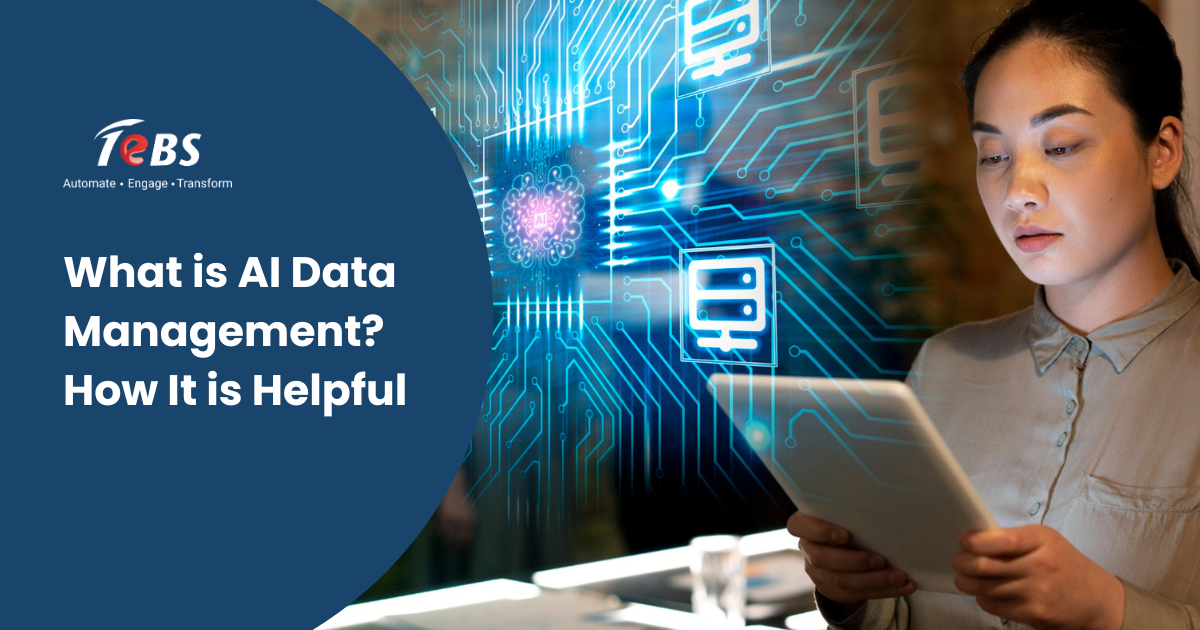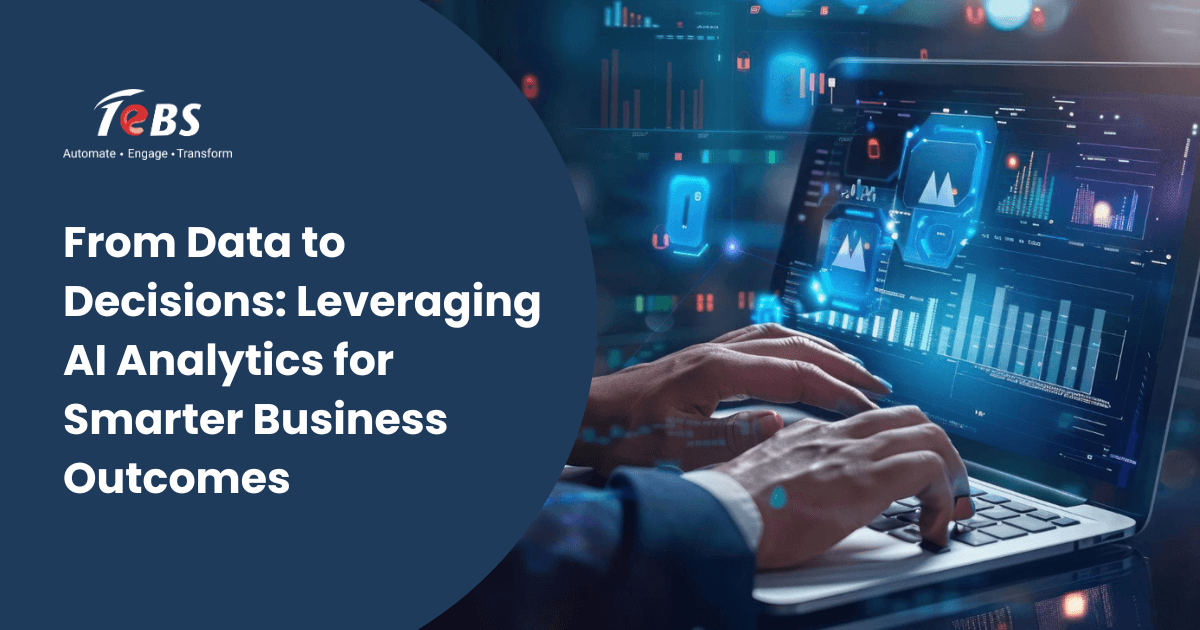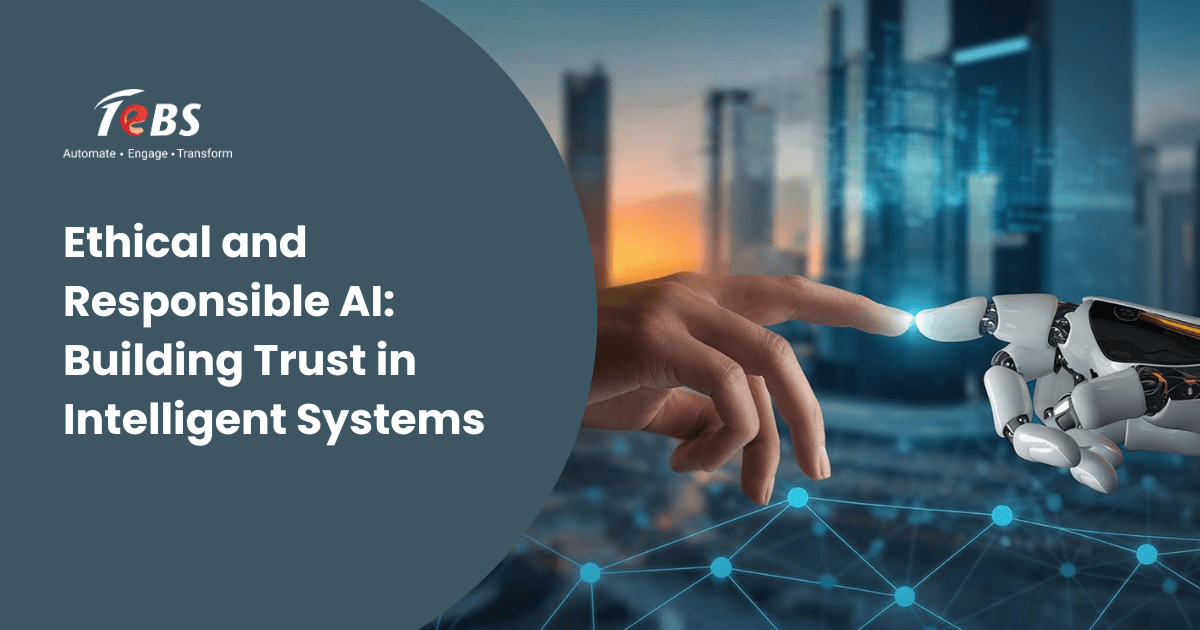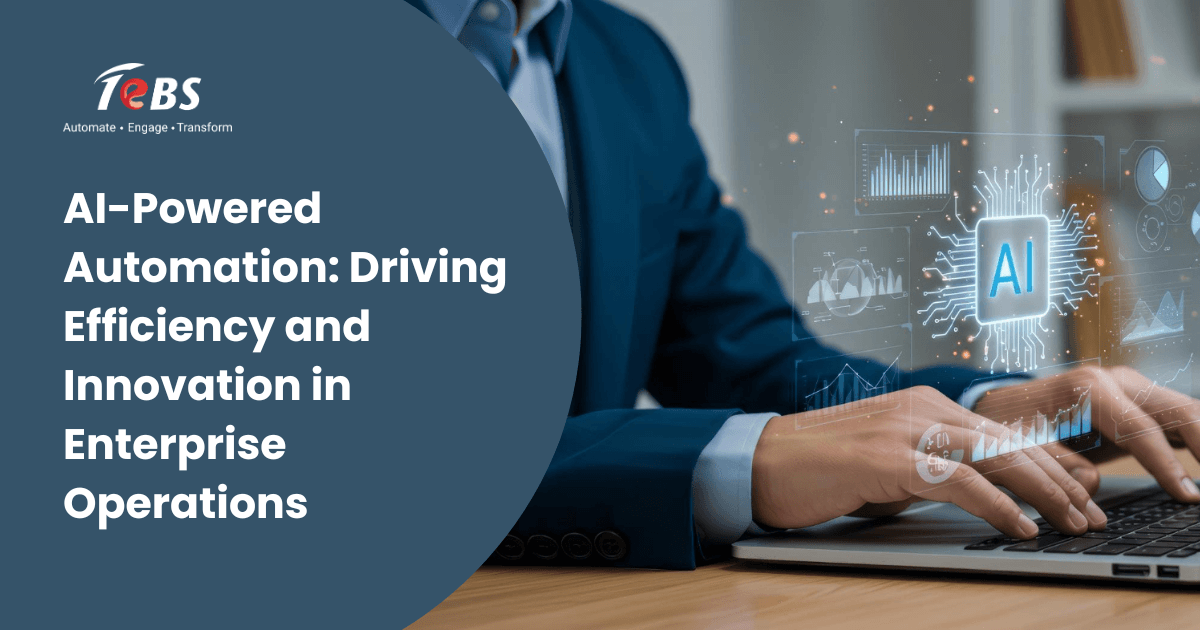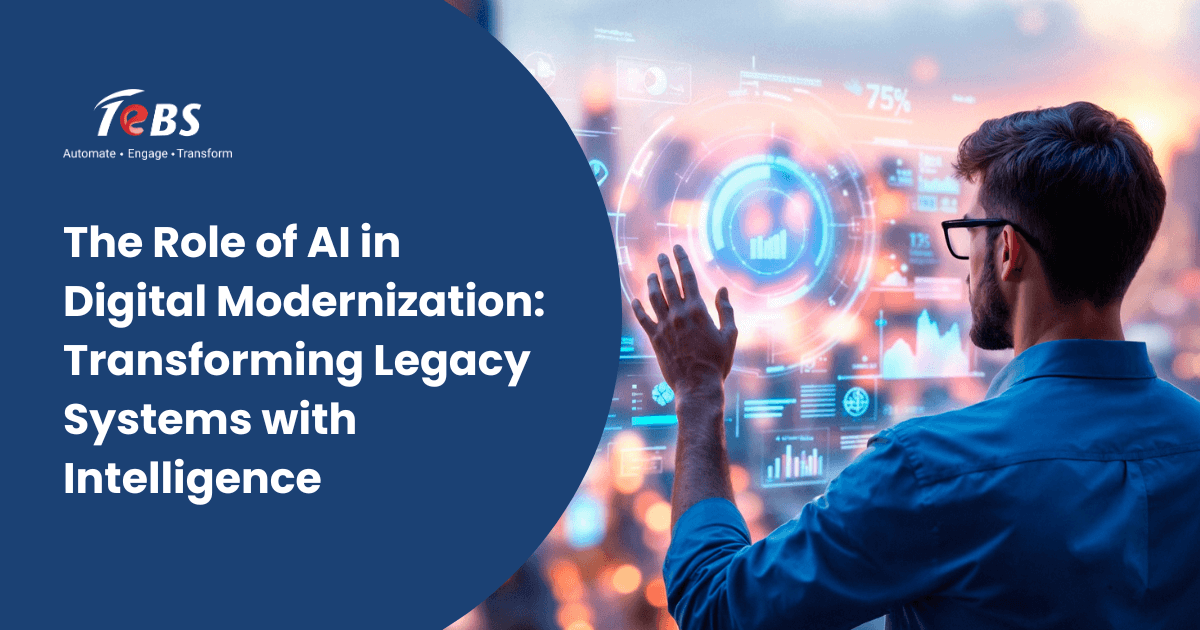Summary
AI data management is transforming how businesses handle information by automating data collection, cleansing, and analysis. Instead of relying on traditional manual processes, AI enables organizations to gain real-time insights, predictive analytics, and improved data accuracy while enhancing compliance and security. From healthcare and finance to manufacturing, retail, and smart cities, industries are already seeing measurable benefits like faster decisions, lower costs, scalability, and better customer experiences. Looking ahead, AI will power advanced trends such as data fabrics, hyper automation, conversational interfaces, and privacy-preserving analytics, making it an essential driver of digital transformation.
Introduction to AI’s Impact on Data Management
Data has become one of the most valuable assets for any business, influencing decisions, driving innovation, and shaping customer experiences. However, the sheer volume, velocity, and variety of data generated today often overwhelm traditional data management systems. Managing vast datasets manually or through conventional software limits accuracy, efficiency, and the ability to gain timely insights.
Artificial Intelligence (AI) has emerged as a transformative force in this space. By combining machine learning, natural language processing, predictive analytics, and automation, With TeBS, AI company in Singapore, businesses can seamlessly adopt these innovations to transform their operations. Rather than treating data management as a reactive, manual task, AI enables it to be proactive, adaptive, and insight-driven—turning raw information into strategic intelligence in real time.
With AI, businesses no longer just store data; they harness it dynamically, uncovering patterns and correlations that were previously invisible. This evolution is creating faster decision-making cycles, reducing operational bottlenecks, and enabling organizations to stay competitive in a rapidly changing market.
Core Features of AI in Data Handling
AI-powered data management systems stand out from traditional solutions because they don’t just store and retrieve data—they continuously learn, adapt, and optimize. Some core features include:1. Automated Data Ingestion and Processing
AI systems can automatically collect and process data from diverse sources, including structured databases, unstructured documents, IoT devices, and real-time streams. This eliminates the need for extensive manual input and reduces human error.2. Intelligent Data Classification
AI can categorize data based on its content, context, and usage patterns. Whether it’s customer records, financial transactions, or product data, intelligent classification ensures quick retrieval and better compliance with data governance policies.3. Data Cleansing and Quality Enhancement
Poor data quality can undermine decision-making. AI algorithms detect inconsistencies, missing values, and duplicates, then automatically correct or flag them. This creates cleaner datasets for accurate analysis.4. Predictive Analytics
By identifying patterns in historical data, AI can forecast trends, behaviors, and risks. This predictive capability supports better business planning, from demand forecasting to risk management.5. Real-Time Insights
AI processes data streams instantly, providing up-to-date intelligence. For industries like finance, healthcare, and logistics, this capability ensures decisions are based on the most current information available.6. Natural Language Querying
Advanced AI data platforms allow users to query data using everyday language rather than complex code. This democratizes access to insights, enabling non-technical staff to engage directly with data.7. Adaptive Security and Compliance
Building an AI-ready data culture is critical, as Microsoft emphasizes the importance of governance, compliance, and infrastructure in preparing data for AI.Benefits of AI-Driven Data Management
According to Gartner, preparing AI-ready data involves a structured roadmap—assessing use case alignment, gaining executive buy-in, evolving governance, extending your data ecosystem, and scaling responsibly.1. Faster Decision-Making
Organizations leveraging AI-powered Data Analytics AI gain deeper insights and enhance accuracy in strategic planning.2. Improved Accuracy and Reliability
Automated cleansing and validation reduce human error and create trustworthy datasets. This ensures analytics and reports reflect reality, not flawed assumptions.3. Cost Efficiency
By automating repetitive data tasks, organizations reduce labor costs and free teams to focus on high-value work. Additionally, AI optimizes storage and infrastructure usage, lowering operational expenses.4. Scalability
AI systems can handle growing datasets without a proportional increase in resources. As business operations expand, the data management framework remains efficient and responsive.5. Enhanced Compliance and Risk Management
AI’s ability to track data usage, monitor access, and flag anomalies strengthens governance. This minimizes the risk of non-compliance penalties and data breaches.6. Better Customer Experiences
Through AI-driven personalization, companies can tailor products, services, and communications to individual preferences, boosting customer satisfaction and loyalty.Real-World Applications of AI in Industries
Total eBiz Solutions (TeBS) implemented an AI-powered Enterprise Knowledge Discovery solution (EKGAI) to enhance search efficiency in a global engineering consultancy’s bid and submissions management team. By leveraging Generative AI for optimized document search, continuous learning, and data currency validation, the solution significantly improved relevance, speed, and workflow accuracy.1. Healthcare
Hospitals and research institutions use AI to manage patient records, analyze medical images, and predict disease outbreaks. AI-driven data analysis accelerates drug discovery and enables precision medicine tailored to individual genetic profiles.2. Financial Services
Banks and insurance companies apply AI to detect fraudulent transactions in real time, assess credit risk, and optimize investment strategies. Intelligent systems also improve customer service through chatbots and personalized financial advice.3. Manufacturing
Manufacturers use AI to manage supply chain data, monitor equipment performance, and predict maintenance needs before breakdowns occur. This reduces downtime and boosts productivity.4. Retail and E-Commerce
Retailers leverage AI to track purchasing patterns, forecast demand, and optimize inventory. AI-powered recommendation engines improve product suggestions, increasing sales and customer satisfaction.5. Public Sector and Smart Cities
Governments use AI to analyze vast public data for urban planning, traffic management, and emergency response. This enables more efficient allocation of resources and enhances citizen services.6. Energy and Utilities
Energy companies implement AI for predictive maintenance of infrastructure, real-time monitoring of consumption patterns, and optimization of renewable energy distribution.Future Trends in AI and Data Management
As TechRadar Pro highlights, AI agents can only succeed when built on governed, high-quality data—a reminder that robust AI data management foundations are critical for future systems.1. AI-Driven Data Fabric Architectures
Future data systems will create interconnected “data fabrics” that unify information across cloud, on-premise, and edge environments. AI will continuously integrate and analyze this data, ensuring seamless access for all stakeholders.2. Hyperautomation in Data Workflows
AI will work in conjunction with robotic process automation (RPA) to fully automate complex data workflows—from ingestion to analytics—eliminating nearly all manual intervention.3. Conversational Data Interfaces
Natural language processing will advance to the point where any employee can simply “ask” the system for insights and receive instant, actionable answers, further democratizing analytics.4. Augmented Data Discovery
AI will not only process existing data but also identify missing or underutilized datasets that could offer valuable insights. This will expand the scope and quality of decision-making.5. Privacy-Preserving AI
As data privacy regulations become stricter, AI systems will increasingly adopt privacy-preserving techniques like federated learning, enabling analytics without compromising sensitive information.6. Integration with Emerging Technologies
AI-driven data management will converge with blockchain for secure audit trails, IoT for real-time data collection, and quantum computing for unprecedented processing speed.Conclusion
AI data management is transforming the way organizations store, process, and utilize information. It shifts data handling from a passive, reactive function to an intelligent, predictive, and proactive strategy. The ability to process vast amounts of data in real time, ensure quality, and generate actionable insights empowers businesses to innovate faster, respond to challenges with agility, and create deeper connections with customers.
Organizations that adopt AI-driven data management are not just keeping pace with digital transformation—they are shaping it. Whether in healthcare, finance, manufacturing, or the public sector, the potential for growth, efficiency, and competitive advantage is immense.
To explore how Total eBiz Solutions (TeBS) can help your organization implement powerful AI data management solutions tailored to your industry, reach out to [email protected] and start transforming your data into a strategic advantage.
Frequently asked questions
How does TeBS define AI data management for enterprises?
TeBS defines AI data management as the intelligent automation of data collection, cleansing, governance, and analytics—helping enterprises turn raw information into real-time, actionable insights that drive growth and innovation.
What types of data management solutions does TeBS support with AI?
TeBS supports enterprise-wide solutions such as automated data ingestion, predictive analytics, real-time monitoring, data quality management, governance, compliance, and AI-powered knowledge discovery tailored to industry needs.
How is AI used in TeBS data management solutions?
TeBS integrates machine learning, natural language processing, and predictive models to automate classification, detect anomalies, personalize insights, and streamline compliance—ensuring data is accurate, secure, and business-ready.
What are the key benefits of TeBS-driven AI data management?
Key benefits include faster decision-making, reduced costs, improved data accuracy, scalability, enhanced compliance, and better customer experiences powered by AI-driven personalization and insights.
What challenges in traditional data management does TeBS help solve with AI?
TeBS addresses inefficiencies like manual data entry, siloed systems, poor data quality, compliance risks, and slow reporting—replacing them with automated, intelligent, and proactive data workflows.
Why should organizations choose TeBS for AI-powered data management in Singapore?
As a trusted AI solutions provider in Singapore, TeBS combines technical expertise with industry knowledge to deliver scalable, compliant, and future-ready data management solutions tailored to business goals.

